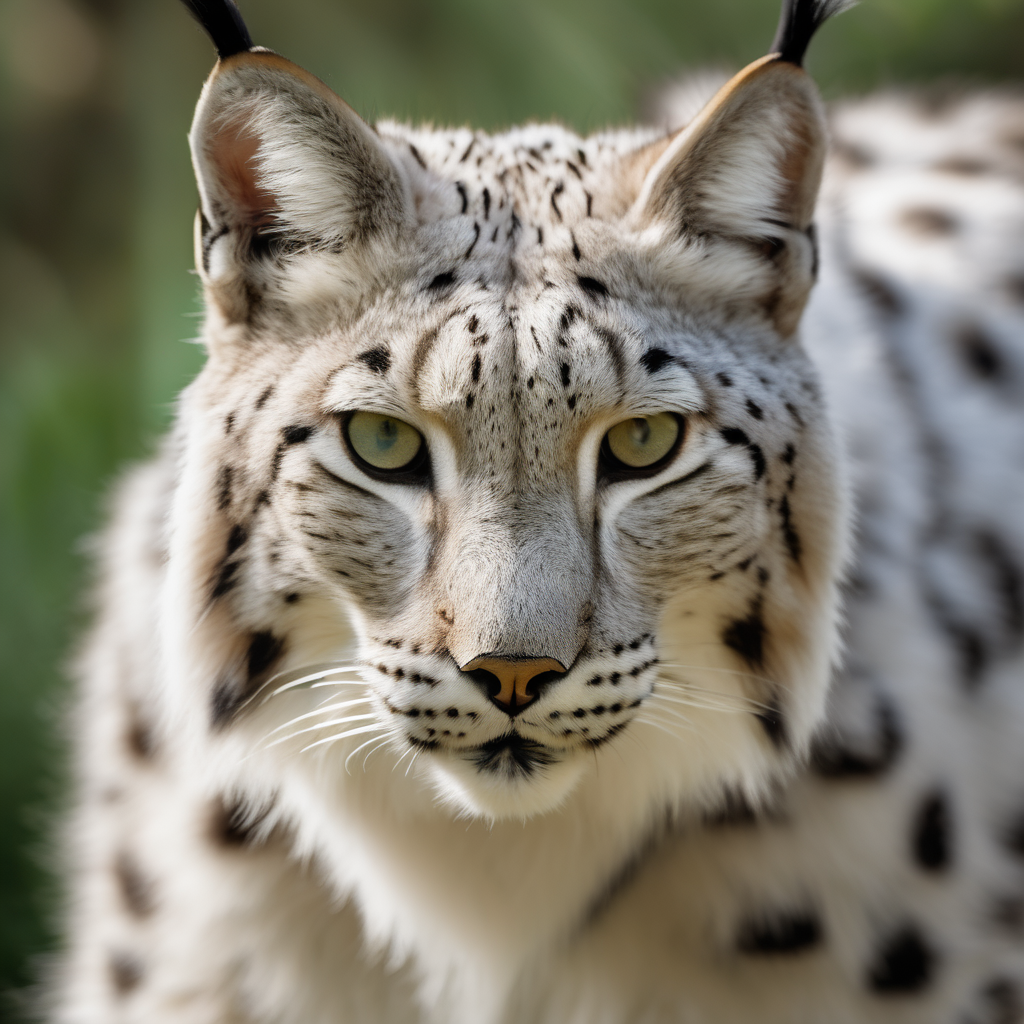A young amateur photographer from Spain has made headlines after capturing the first-ever images of a leucistic Iberian lynx, believed to be one of the rarest big cats in the world. Ángel Hidalgo, a 29-year-old who works in a construction materials factory, dedicates his free time to nature photography, often traveling across the Andalusian region in search of wildlife.
In a significant twist of fate a month ago, Hidalgo set up a camera trap to document local fauna. When he reviewed the footage, he was astonished to find images of a ghostly white lynx. “I thought it was a camera effect,” he told National Geographic España. The discovery fueled his determination to observe the lynx in person.
Despite numerous attempts to locate the elusive animal, Hidalgo faced several disappointments that almost led him to abandon his quest. However, one rainy morning changed everything. As he ventured out once more, he spotted a white figure in the distance that seemed to emit its own light.
Upon approaching, he was filled with awe as he encountered the rare leucistic Iberian lynx, distinguished by its striking snow-white fur. “I was stunned; I couldn’t believe what I was seeing,” Hidalgo recalled. “I felt very fortunate to witness this moment in the natural habitat of such a magnificent animal.”
The leucistic Iberian lynx Hidalgo photographed is a result of leucism, a genetic condition that leads to a partial loss of pigmentation. This encounter highlights not only the beauty of nature but also the significance of wildlife conservation. National Geographic España reported that the Iberian lynx, which was reclassified from endangered to vulnerable last year, now boasts a population of approximately 2,400 individuals on the Iberian Peninsula, marking a significant conservation success.
Hidalgo expressed how this experience deepened his appreciation for nature and its protection. He has chosen not to disclose the specific location of his sighting, as illegal hunting continues to threaten the Iberian lynx population. This remarkable discovery serves as both a reminder of the wonders of the natural world and the ongoing efforts necessary to protect its rarest inhabitants.
